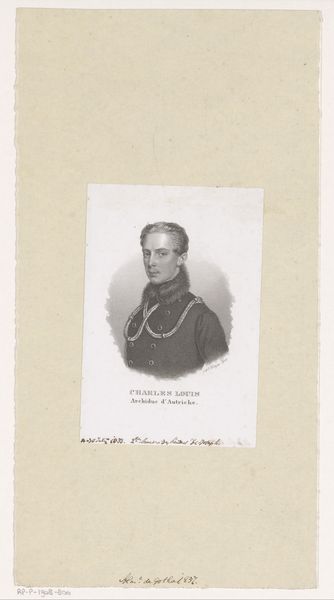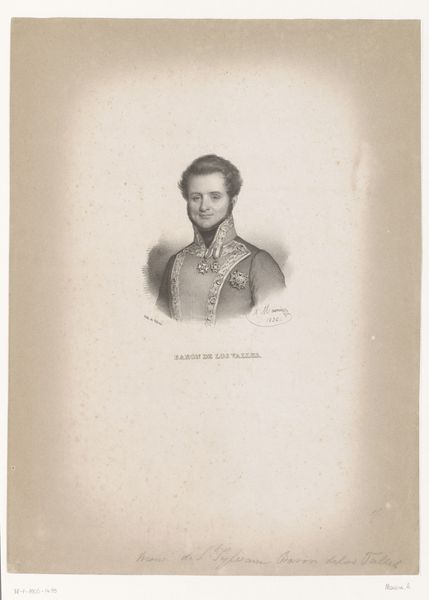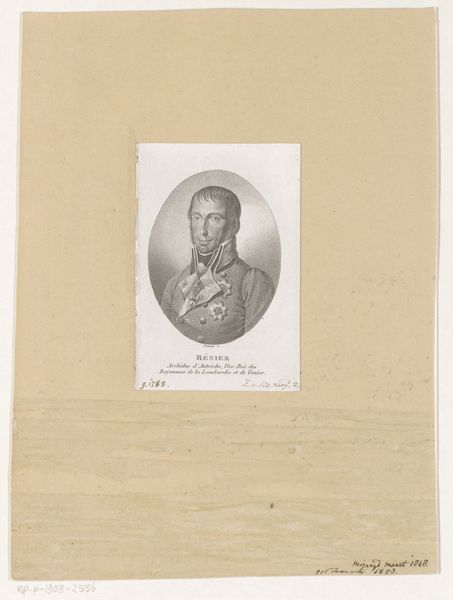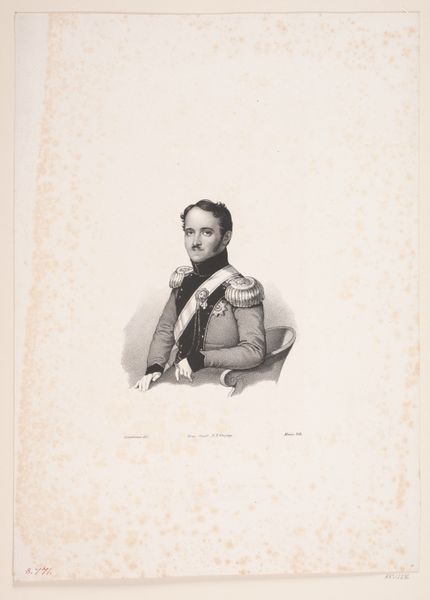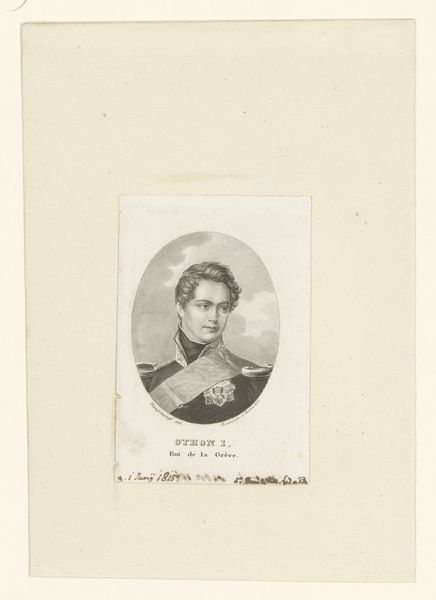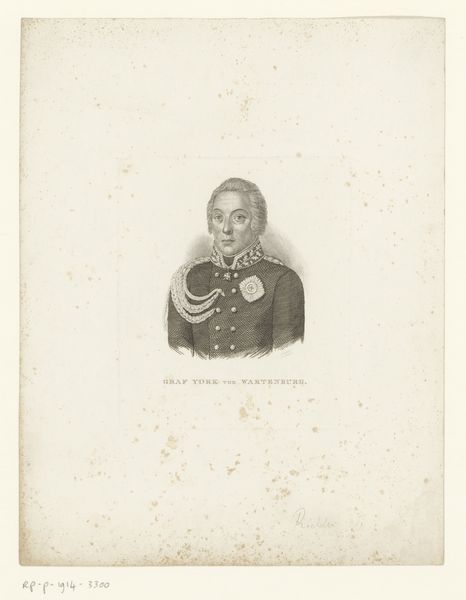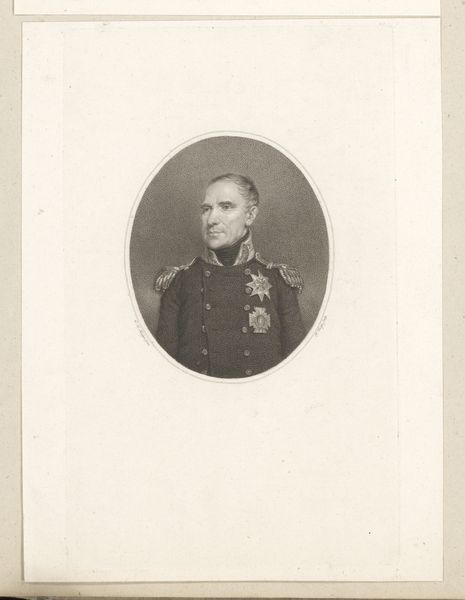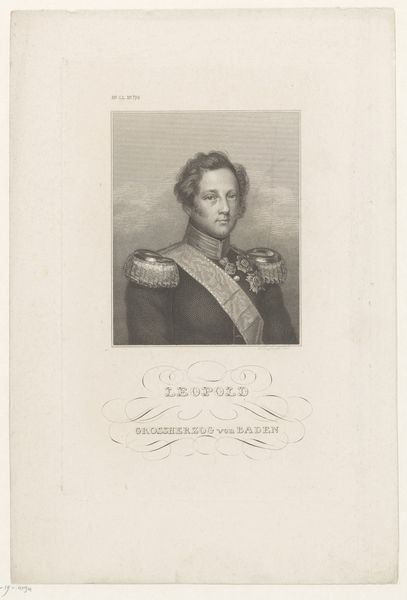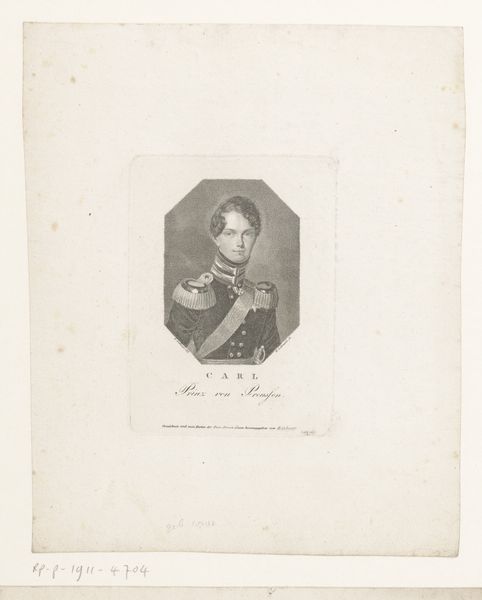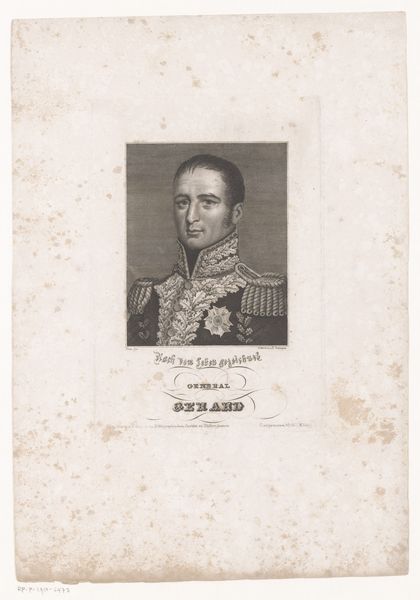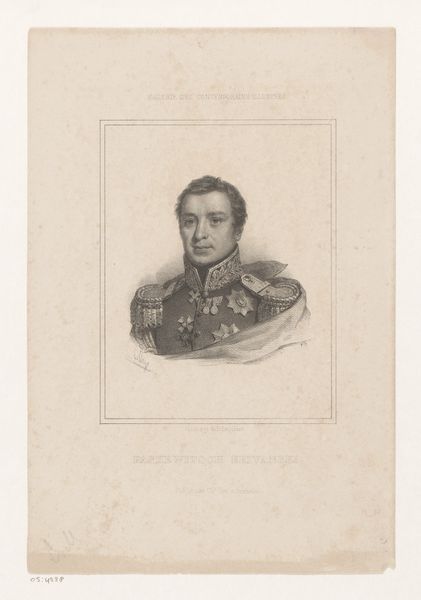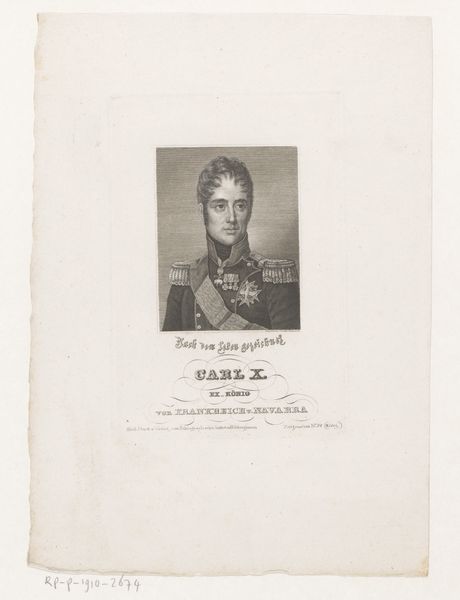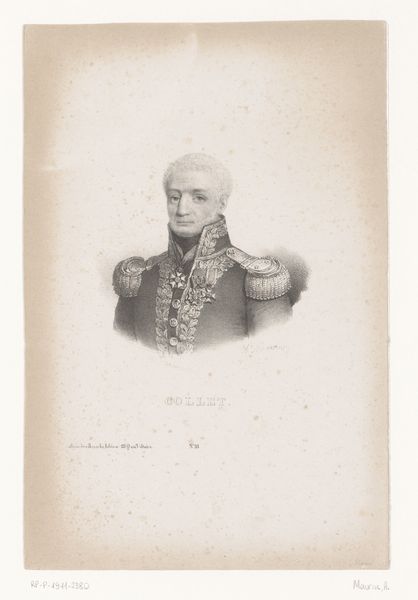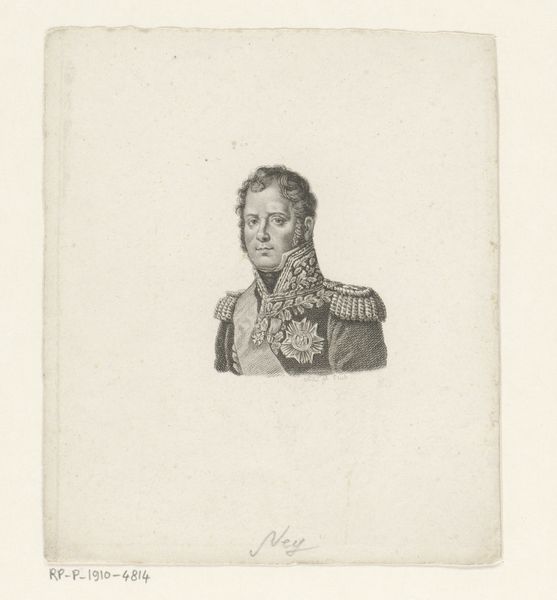
print, engraving
#
portrait
#
16_19th-century
# print
#
old engraving style
#
archive photography
#
historical photography
#
history-painting
#
academic-art
#
engraving
#
realism
Dimensions: height 140 mm, width 105 mm
Copyright: Rijks Museum: Open Domain
Ferdinand Bahmann made this print of Ivan Paskevitsj, a General of the Russian Empire, sometime in the first half of the 19th century. Paskevitsj’s stern gaze and puffed chest speak to the power associated with the Russian military at the time. The image creates meaning through visual codes of social standing. Wearing his military uniform, Paskevitsj’s medals signify the success of his military campaigns. His high status within the military speaks to the political structures of 19th century Russia, a time when military personnel held great social power. Russia’s geography, with few natural barriers, meant that the country had to prioritize military strength for defense. Thus, the military was a key institution, highly valued, and able to support the political status quo. The historian’s role is to reveal the complex social context which formed the artist’s creation. We can look to archives, newspapers, and other images to understand the significance of figures such as Paskevitsj. Art is something that is contingent on social and institutional context.
Comments
No comments
Be the first to comment and join the conversation on the ultimate creative platform.
